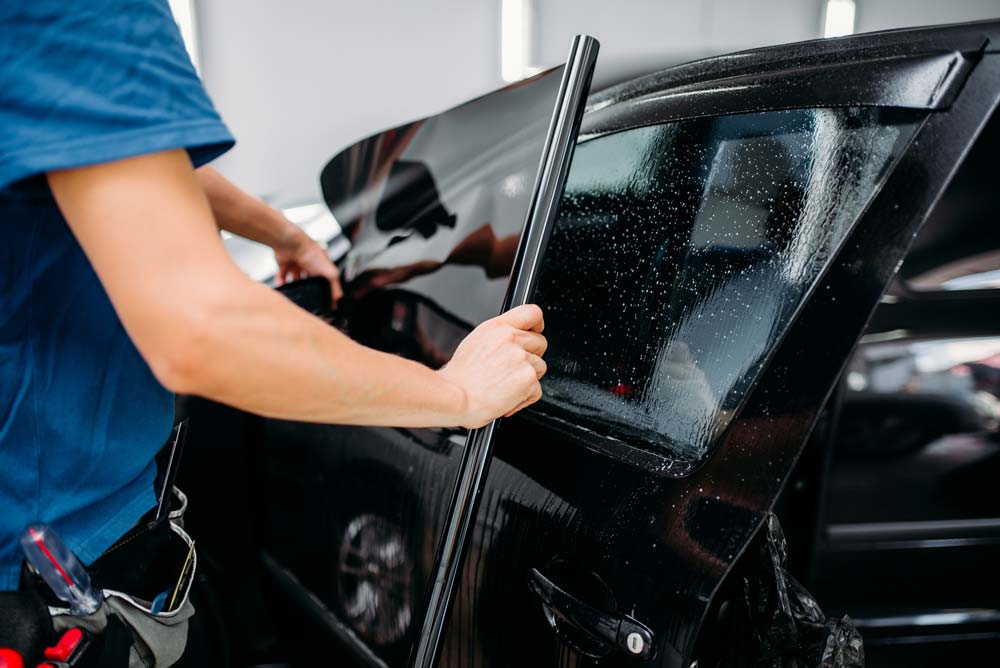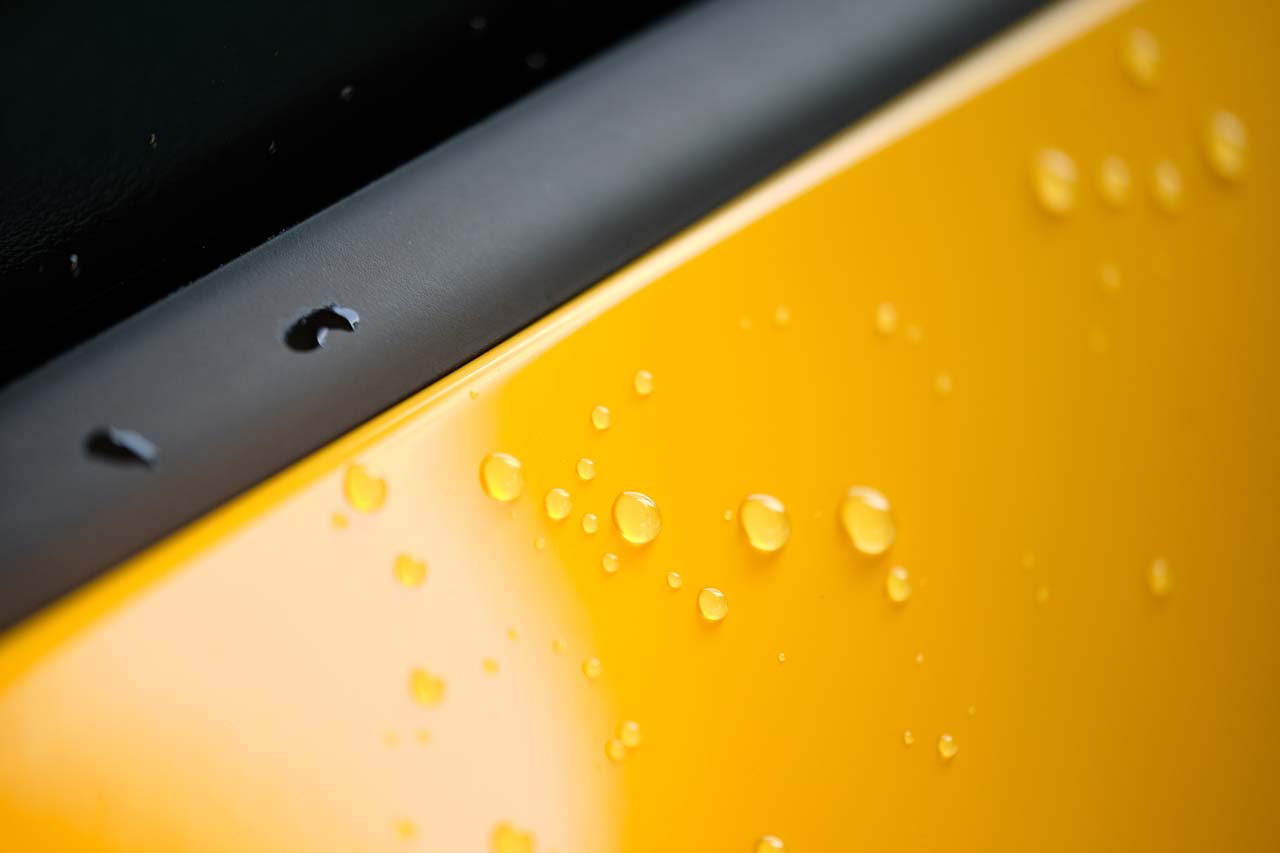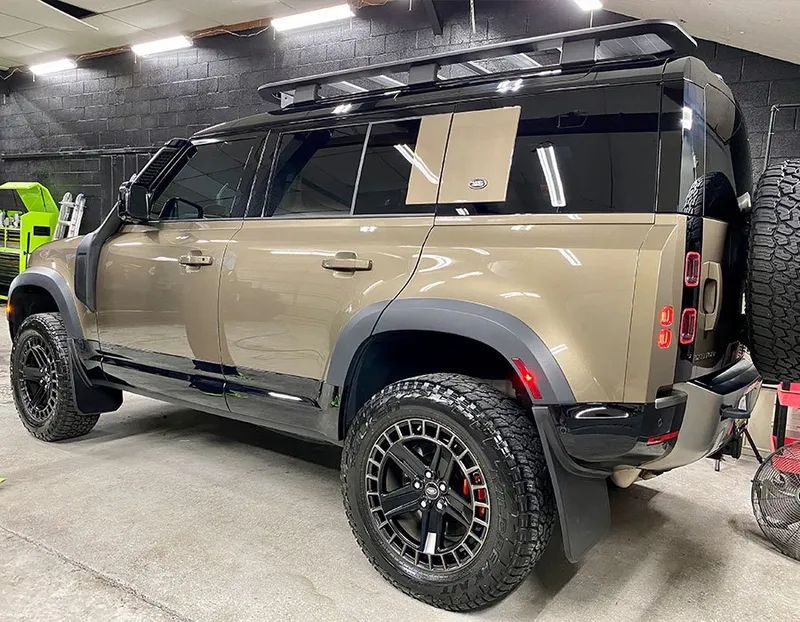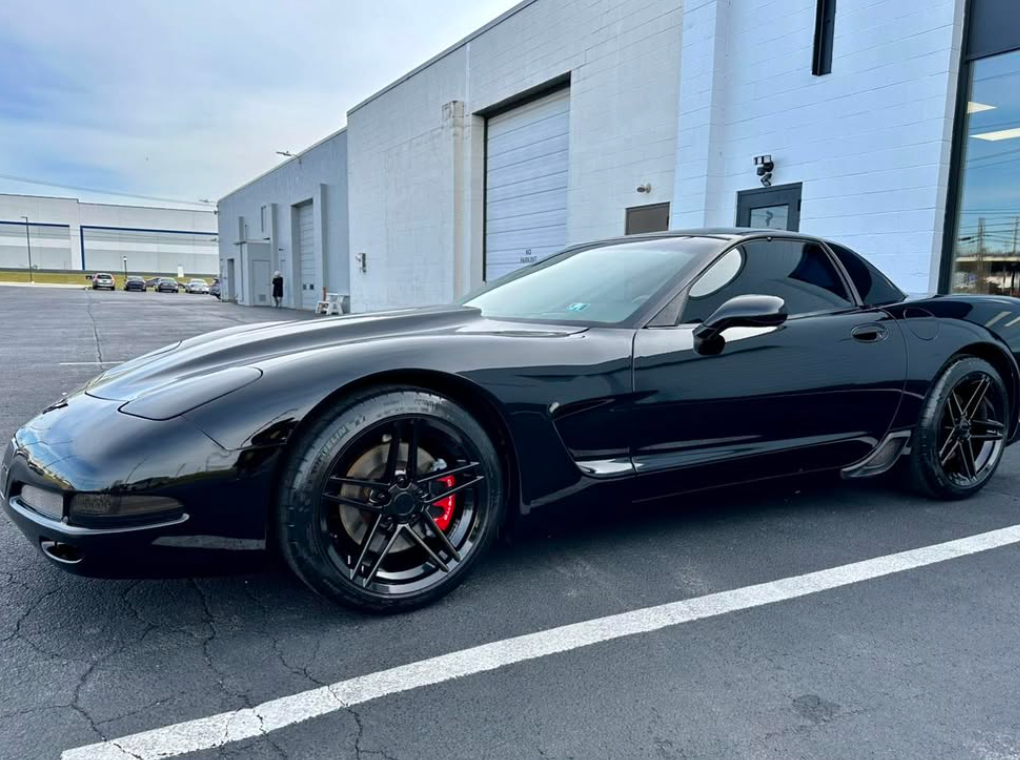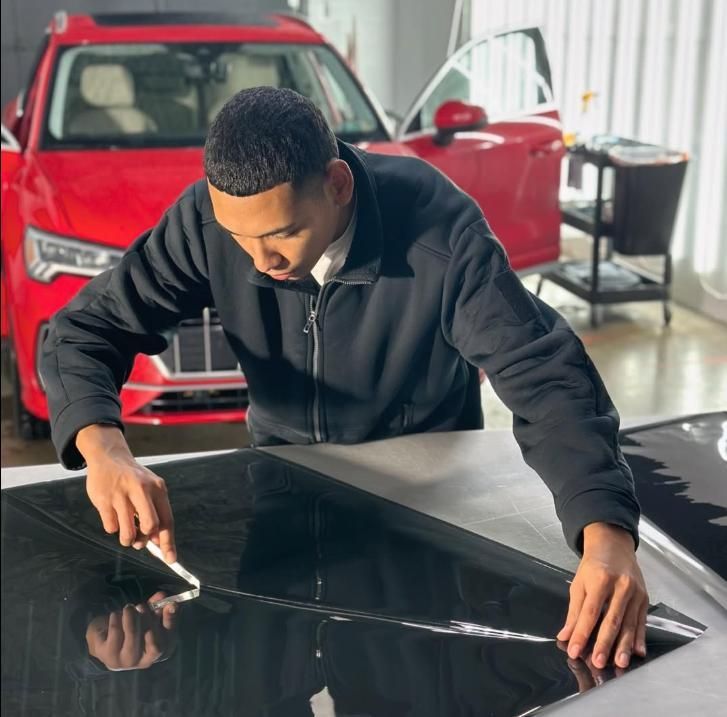When it comes to maintaining your vehicle, there’s no denying that keeping it in pristine condition is a top priority for many owners. One of the most effective ways to preserve your car’s exterior is by applying Paint Protection Film (PPF). Not only does PPF shield your vehicle from the daily wear and tear caused by road debris, rock chips, and environmental hazards, but it also has a significant impact on the resale value of your vehicle. In this blog, we’ll explore how PPF contributes to the long-term value of your car and why it's a smart investment for any vehicle owner.
Paint Protection Film and Market Value
The relationship between paint protection film (PPF) and market value is significant. By acting as a resilient shield against various forms of damage—whether that’s from gravel on the road, harmful UV rays, or even minor accidents—PPF preserves the aesthetic appeal of vehicles over time. Imagine a car gleaming under sunlight, with a surface so smooth that it nearly reflects your surroundings like a mirror; this is no small feat for vehicles exposed to daily wear and tear. Protecting a vehicle's exterior not only keeps it looking new but also plays a crucial part in its resale value.
Key Factors Contributing to Increased Resale Value
Several factors amplify the positive influence of PPF on resale value. For starters, aesthetic appeal is paramount. Cars with dull paint are less likely to attract buyers and may lead to price negotiations that can drastically lower their perceived worth. Conversely, clean, unmarred surfaces create emotional connections for potential buyers who envision themselves enjoying the same condition in their own ownership experience.
Following closely behind aesthetics are cost savings from repairs and detailing. Regular maintenance activities like polishing or fixing dents can become costly over time—PPF alleviates much of this burden by providing a safeguard against minor damage that would otherwise require professional attention. Furthermore, consider how advancements in PPF technology can enhance vehicle longevity and client satisfaction.
Innovative PPF products now feature self-healing properties that can absorb scuffs, meaning many minor blemishes will disappear on their own when subjected to heat from sunlight or hot water. This translates directly into lower upkeep costs for owners whilst maintaining that showroom appearance.
From a financial standpoint, these attributes simply mean smoother sailing when it comes time to sell or trade-in at a dealership. A vehicle equipped with high-quality PPF stands out in both online listings and dealership lots alike—often commanding respect among buyers who recognize the investment made in such protective measures. With this understanding of how protective technology enhances market value, we can now explore the compelling advantages and features of paint protection film itself, which make it an essential investment for vehicle owners.
Key Benefits of Paint Protection Film
The advantages of installing Paint Protection Film (PPF) extend well beyond mere numbers; they also encompass tangible, everyday benefits that car owners can appreciate in practical ways. One of the most noticeable perks is its protection against chips. Imagine this: you're parked in a busy lot, and someone carelessly opens their door right into your vehicle. Knowing that the PPF will absorb the impact will ease your concerns about paint damage. Essentially, it serves as a sacrificial layer designed to endure scrapes, keeping your car's paint safe from everyday hazards.
But the benefits don't stop there; PPF also offers UV resistance, which is crucial for preserving your car’s appearance over time. Sunlight can significantly fade a vehicle's paint with prolonged exposure. With PPF applied, the UV inhibitors embedded within the film shield your car from such deterioration, ensuring that those vibrant colors stay fresh and intact much longer. You won't find yourself needing a repaint sooner than expected.
Another remarkable feature of advanced PPF products is their self-healing properties. When exposed to heat—whether from the sun or warm water—the film automatically "heals," making those little irritating blemishes disappear like magic. This not only maintains your car's aesthetic but also saves you from additional repair costs down the line.
Furthermore, PPF makes maintaining the pristine appearance of your vehicle much easier thanks to its ease of maintenance. Cars treated with PPF tend to repel dirt and grime more effectively than those without it. As a result, cleaning becomes less of a chore; a simple wash is often enough to get rid of any accumulated buildup. By keeping your car looking sharp with minimal effort, you enhance your ownership experience.
These benefits strengthen your vehicle's durability, appearance, and resale value when you upgrade. Investing in PPF is more than just a protective measure; it's a strategy for maintaining both beauty and value in an increasingly competitive market.
As we explore how these elements come together to enhance overall value in specific scenarios, it's essential to consider additional enhancements that can further elevate your investment.
Resale Value Enhancement
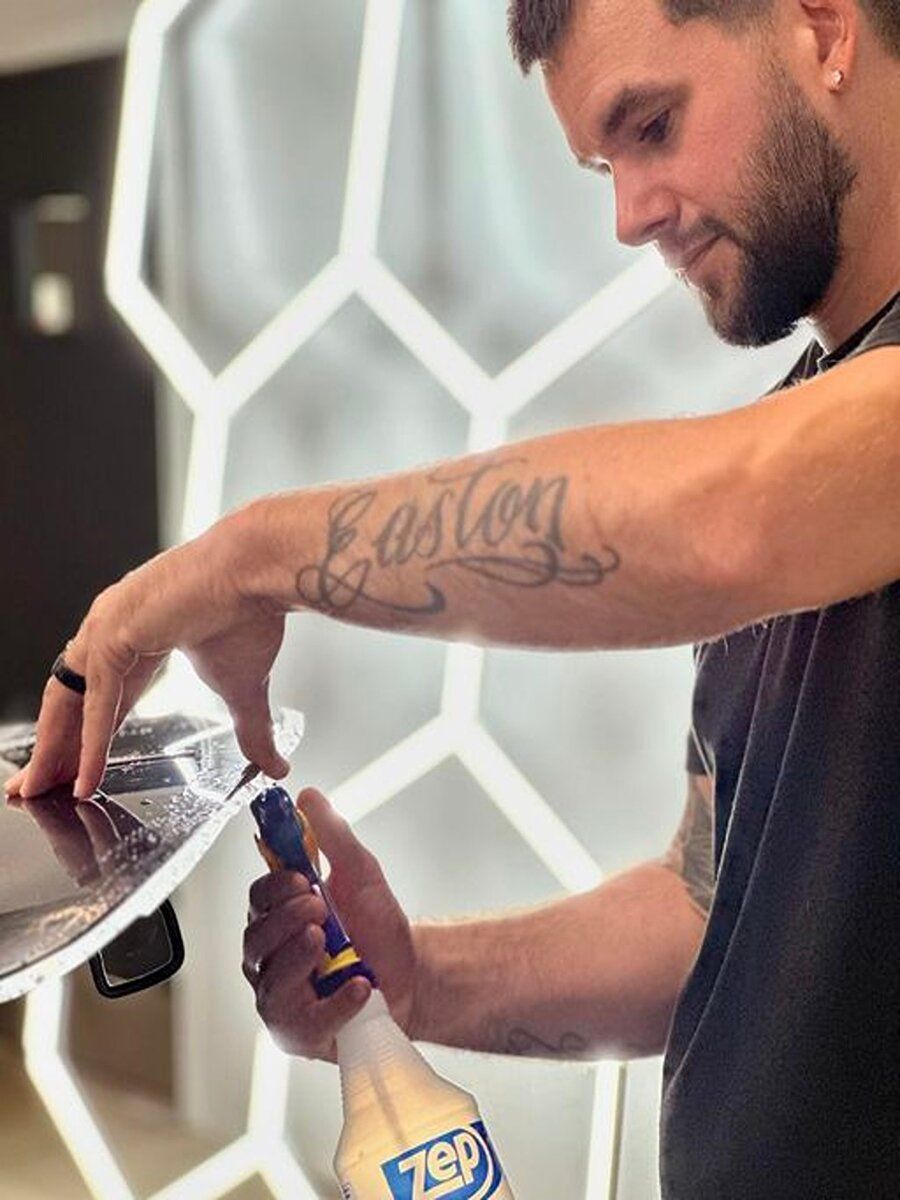
The key influence of PPF on resale value lies in its role as a reassurance mechanism for potential buyers. When they see a vehicle outfitted with this protective film, their first impression is often one of quality and care. Well-maintained and pristine vehicles appeal to buyers seeking an investment as well as transportation. Many people buy a car as a major investment, so ensuring its longevity is crucial.
A study found that over 70% of car buyers consider exterior condition as a top factor when evaluating used vehicles, making PPF particularly compelling. The presence of PPF conveys that the previous owner has taken steps to protect the car from wear and tear, which can translate into a perception of higher value. This proactive approach not only highlights the aesthetic appeal by keeping the paint intact but also enhances the car's overall resale narrative.
Buyers are more inclined to invest when they feel they are getting a polished product; therefore, the addition of PPF can indeed justify a price increase upon resale.
Furthermore, statistics reveal that cars with PPF often command prices that reflect their superior condition. On average, vehicles protected by PPF can retain up to 15% more of their original value compared to those without it. This means that if your vehicle was valued at $20,000 new, applying PPF may potentially allow you to sell it for an additional $2,000 to $3,000.
This enhancement in perception isn't merely anecdotal—it's backed by real market performance. Cars treated with PPF typically spend less time on dealer lots and sell faster than those lacking this feature. When faced with similar options, consumers tend to gravitate toward cars they believe have been cared for deeply.
By reinforcing buyer confidence through enhanced appearance and perceived value, the addition of paint protection becomes an essential strategic move for those considering selling their vehicles in the future.
Buyer Perceptions of Protected Vehicles
When it comes to purchasing a vehicle, buyers are often influenced by their perceptions of its condition and history. One significant aspect that shapes this perception is the presence of Paint Protection Film (PPF). Most buyers associate PPF with premium maintenance and care, which signals that the vehicle has been treated with respect beyond routine upkeep. Consequently, vehicles adorned with this protective layer are usually viewed as better-kept, leading potential buyers to regard such cars as worth the higher price—after all, who wouldn’t want a vehicle that looks like new?
Consider this: A car that appears well-maintained reflects its owner's investment in maintaining its quality. Buyers see PPF not just as an aesthetic enhancement but as a protective measure ensuring long-term durability.
The importance of trust in buyer decision-making
Trust operates as a fundamental element in any purchase decision. Buyers are inclined to trust sellers who present vehicles with PPF because these owners demonstrate proactive measures toward preserving their assets. It’s akin to service records or warranties—factors that instill confidence in the buyer about their prospective purchase. They are more likely to believe that if someone went through the trouble of applying PPF, they probably took other aspects of car maintenance seriously too.
In essence, PPF acts as a psychological barrier against doubt in the minds of buyers. When two similar cars face off against each other—one having this protective film and the other not—it’s often the one with PPF that wins over potential owners.
As we explore these perceptions, they don’t merely enhance desirability; they directly influence financial outcomes. A vehicle equipped with PPF ranks higher on the wish list of many buyers. Therefore, when it comes time for resale, it’s likely to command higher offers.
The analytical perspective of PPF's impact on resale value seamlessly transitions into examining the quantifiable financial benefits associated with installing such protection on your vehicle.
Analyzing costs and gains
Installing PPF certainly comes with upfront costs, but many owners find that these expenses are outweighed by the long-term benefits. Let’s break this down a bit further.
Cost Breakdown
| Component | Average Cost |
|---|---|
| PPF Material | $500 - $1,500 |
| Professional Installation | $1,000-$2,500 |
| Maintenance | Minimal |
When you sum everything up, applying for PPF might set you back anywhere from $1,500 to $4,000. This wide range often depends on the size of the vehicle and the quality of the film used. A larger car or one demanding advanced features may require more extensive coverage and thus incur additional costs.
Of course, some skeptics argue that these funds could be better spent on a fresh paint job instead. However, it's crucial to consider that a new coat of paint doesn't provide the same armor against environmental hazards like chips. Moreover, potential buyers often prefer a well-maintained vehicle that shows minimal signs of wear—something PPF contributes significantly to.
Statistically speaking, PPF can elevate your vehicle's resale value by as much as 15%. This gives owners robust peace of mind, knowing that their initial investment not only protects their car during ownership but can also translate into higher returns when it comes time to sell.
Investing in PPF is about safeguarding your asset in the long run. The enduring protection it offers means you can maintain your car’s pristine condition while enhancing its market appeal. Choosing to skip such protective measures may save you some money upfront but could lead to costly repairs—and a diminished resale value—down the line.
Understanding the relationship between protective investments and their impact on future sales will lead us to explore how various other elements can further influence a vehicle’s resale opportunities.
Additional factors influencing resale
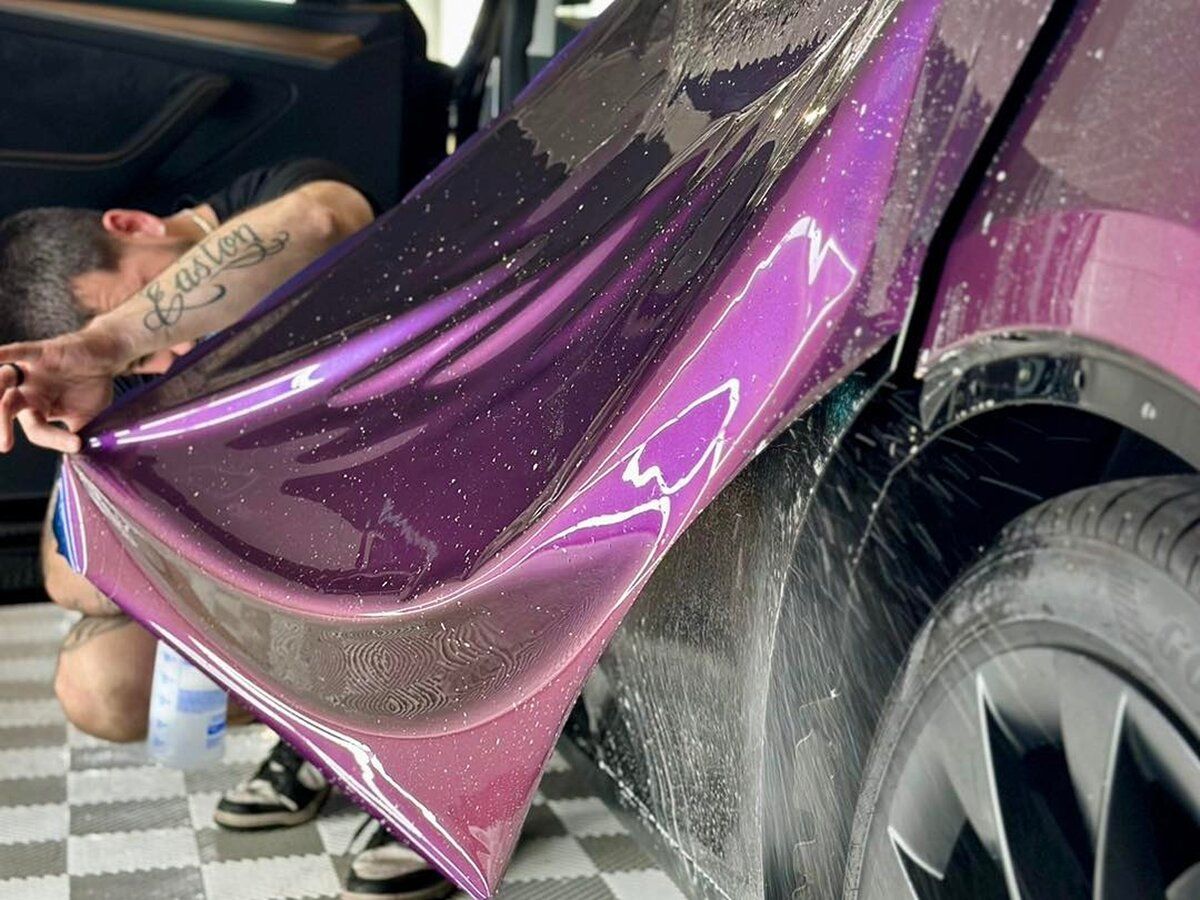
Overall, vehicle condition is a major factor in selling prices. A car that sparkles on the outside and feels clean on the inside will always draw a buyer's eye. Regular upkeep not only enhances aesthetics but also shows potential buyers that you've taken care of the vehicle over time.
When a buyer opens a door and is greeted with a tidy interior and well-maintained upholstery, they are more likely to feel confident about making an offer. However, a messy car or visible wear and tear can raise questions about its care.
Another influencing factor that directly correlates with resale value is mileage. Generally speaking, lower mileage translates into a higher price at resale. Buyers often equate a lower odometer reading with better overall condition and a potentially longer lifespan for the vehicle.
For example, two identical models from the same year may fetch drastically different prices if one has 30,000 miles while the other has 80,000 miles. This underscores why maintaining low mileage—by combining tasks like errands or avoiding unnecessary trips—can pay off when it's time to sell.
Furthermore, market demand for specific brands and models can't be overlooked. Certain vehicles have impending popularity due to their reliability or consumer loyalty—think of how hesitant buyers might be looking for a specific make known for its longevity. Cars that are well-regarded in the market not only tend to hold value better but often appreciate over time as they become sought-after collector’s items. Staying informed about which cars are desirable can guide your purchasing decisions and help you retain higher resale values.
Lastly, having a robust service history readily available can significantly impact buyer confidence during resale negotiations. These records serve as proof of consistent maintenance and repairs performed on the vehicle, allowing buyers to trust that it’s in good working order. If you've kept all receipts or maintenance records organized in a folder, it demonstrates responsibility as an owner and adds peace of mind for prospective buyers who want assurance about what they’re purchasing.
In summary, understanding these factors alongside Paint Protection Film can significantly improve your vehicle's appeal and resale price in the competitive market.
Protect Your Investment with Prestige Auto Spa & Coatings: Your Trusted Expert for Paint Protection Film (PPF)
When it comes to protecting your vehicle, you want to ensure you're working with trusted professionals who understand the value of preserving its appearance and longevity. At Prestige Auto Spa & Coatings, we pride ourselves on being experts in Paint Protection Film (PPF) application, helping car owners in York, PA, maintain the pristine condition of their vehicles for years to come. Our team is trained to meticulously apply PPF to ensure a seamless, virtually invisible layer of protection. We use the finest materials, including
STEK Paint Protection Film, a leader in the industry known for its durability, clarity, and self-healing properties. With our expert installation, your vehicle will look as good as new, no matter how many miles you put on it. Book Prestige Auto Spa & Coatings today to learn more about our Paint Protection Film services and schedule your consultation.


